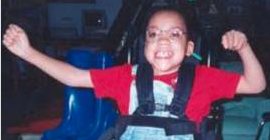| DHS – Give Us Back Our Children, a multi-racial group of mothers and supporters fighting for custody of their children in foster care, hailed the landmark decision to criminally indict four workers in the 2006 death of a child under the supervision of the Philadelphia Department of Human Services. They will hold a protest at DHS on August 7 to demand an end to DHS abuse of power and lack of accountability, and cautioned against another DHS “foster care panic” in response to the tragedy.
“We are sickened that it took the death of a child to expose the truth, but it is long overdue that social workers are held accountable for callous, negligent and deadly behavior that DHS has allowed to go on for years,” said Pat Albright of the Every Mother is a Working Mother Network, the group co-coordinating DHS – Give Us Back Our Children. “Children in real danger like Danieal Kelly are not protected, while DHS is also quick to recklessly remove children from caring homes and put them in foster care, especially children of color, causing life-long scars. Both are crimes, two sides of the same coin of official uncaring. Child protection does not equal child removal: children in care are far more likely to be abused.” Mary Kalyna, a former child welfare worker who is part of the group said, “Social workers have a responsibility to do our jobs, to stand up for our clients and challenge DHS policies that overlook uncaring, irresponsible behavior that leads to tragedies like this. If we don’t, what are we doing? We call on caring social workers to join mothers to get justice.” A mother with a current DHS case added: “While children like Danieal are being starved to death, beaten and maimed, DHS continues to stay in my life, even after years of finding no traces of abuse or neglect on my part. Workers routinely don’t show up, or stay five minutes then submit their time to say they were there two hours and DHS pays them.” In the Kelly case, workers falsified records to show that they had made home visits when they had not, according to the grand jury report. Tili Ayala of Justice for Families, the other coordinating group, began a weekly protest in 2005 outside DHS in her fight to regain custody of her son. “This is why I am fighting to get my son back, I don’t want him neglected and deprived of the love he deserves,” she said. Ayala, of Native American and Latino descent, has never been accused of endangering or neglecting her son, and has complied with all DHS requirements but still stands in danger of permanently losing her parental rights. Her case has been highlighted in local press. An African American mother had five children removed after a neighbor in her predominantly white neighborhood claimed that she had cockroaches, even though the man was never in her house. By contrast, Danieal Kelly’s home was supposedly investigated and deemed acceptable, despite reports of deplorable conditions by neighbors for two years. Samara Johnson of WinVisible (Women with Visible and Invisible Disabilities) said, “This tragic case reflects how little DHS values both children and mothers, especially if they are low-income, of color, and in this case, disabled. They pay millions to agencies to provide services with very little oversight, a set-up for corruption. In Danieal’s case, where were the services for this disabled child and her family? Children are for loving, not for profit.” Richard Wexler, Executive Director of the National Coalition for Child Protection Reform in Washington commented: “Mayor Nutter and DHS Commissioner Ambrose must finish the job of cleaning up the agency, but must ensure that this time, there is no foster-care panic – no knee jerk ‘take-the-child-and-run’ response to tragedy.” Philadelphia removes children from their homes at a rate three times that of Los Angeles, four times that of New York and more than six times that of Chicago. Studies show that children of color are more likely to be taken from their homes, to stay in protective custody longer and never to return to their parents. Former foster children have twice the rate of post-traumatic stress disorder as Gulf War veterans. Among the changes the group is pressing for are: · a uniform standard for determining appropriate action to prevent both the endangerment of children like Danieal Kelly and the unjust and unnecessary removal of children from caring parents · immediate implementation of the proposed Alternative Response System to help families with housing and other resources; poverty does not equal neglect · family/team decision-making on a broad scale in order to begin to break through what the Philadelphia Inquirer the “toxic culture” at DHS, which includes disrespect and harassment of mothers and slow response to allegations of abuse in foster care · a thorough investigation of the financial relationship between DHS and provider agencies, including examination of the services clients are actually receiving, quality control, and the financial incentives agencies have for keep children in foster care Pittsburgh and Chicago are among cities that have implemented changes that resulted in substantial drops in foster care caseload with child safety preserved. |
| Background On July 31, 2008 two DHS workers and two workers for an agency that DHS contracted with were charged with involuntary manslaughter, felony counts of child endangerment and reckless endangerment in the death of Danieal Kelly, a 14-year-old African-American child with cerebral palsy in 2006. It is the first time DHS workers have ever been charged with a crime in connection with their job. Danieal was supposedly visited by workers just weeks before her death from starvation, when her critical condition – severe bedsores infested with maggots visible on her body – would have been apparent to anyone. Danieal’s mother, with whom she lived, has been charged with murder and her father with child endangerment. |

